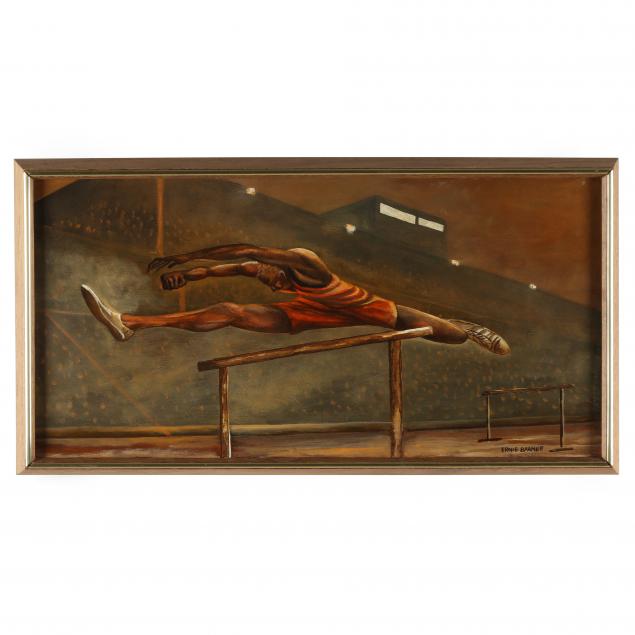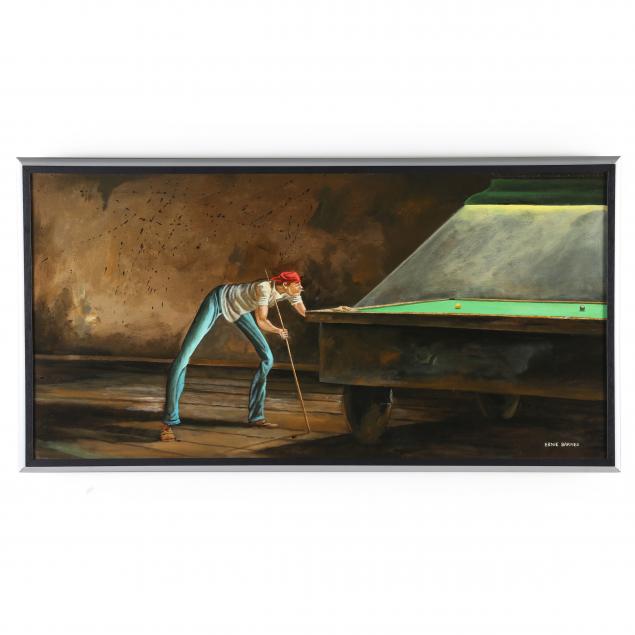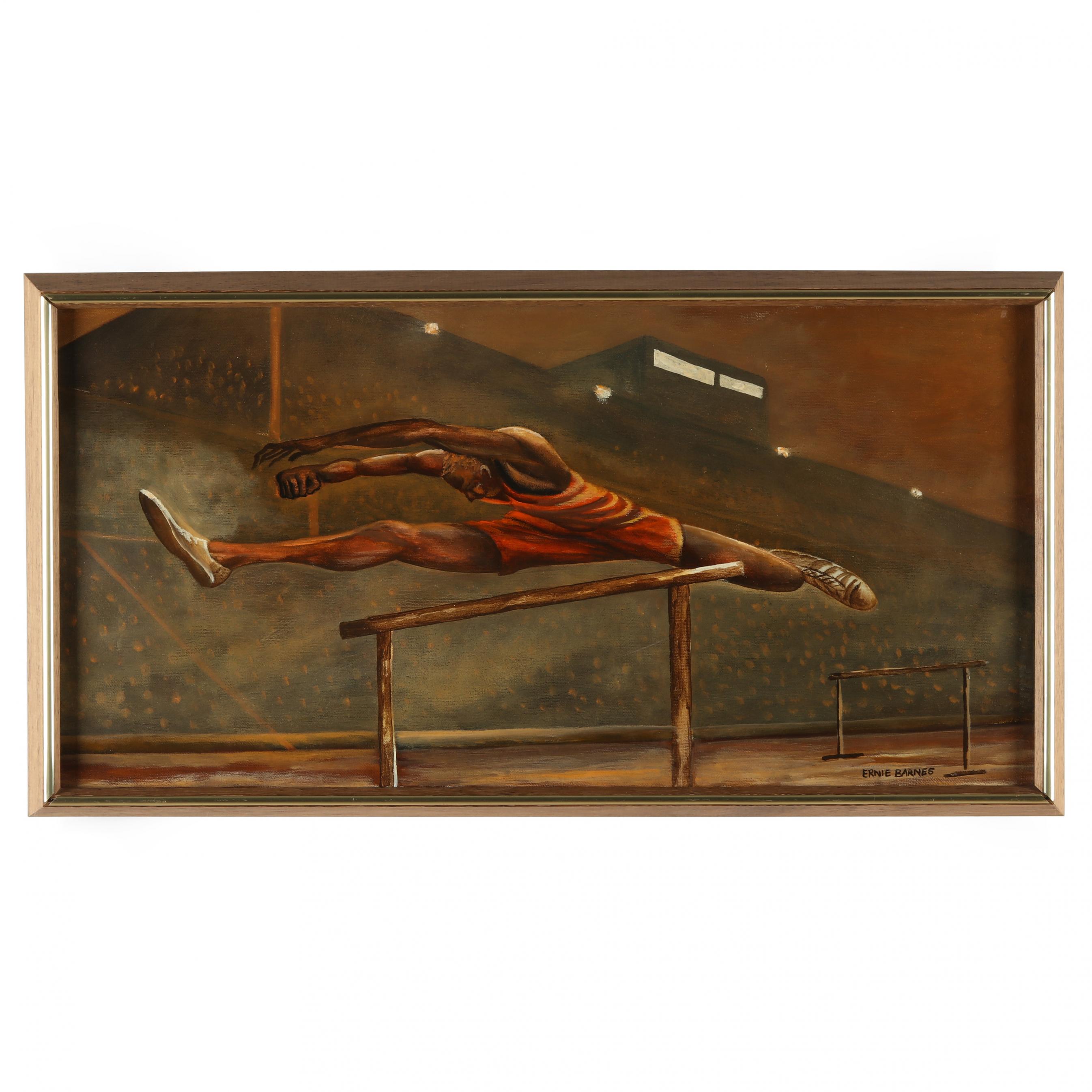
Power, Grace, and Pure Determination
(Wilson) told me to pay attention to what my body felt like in movement. Within that elongation, there’s a feeling, an attitude and expression. I hate to think had I not played sports what my work would look like.
– Ernie Barnes
– Ernie Barnes
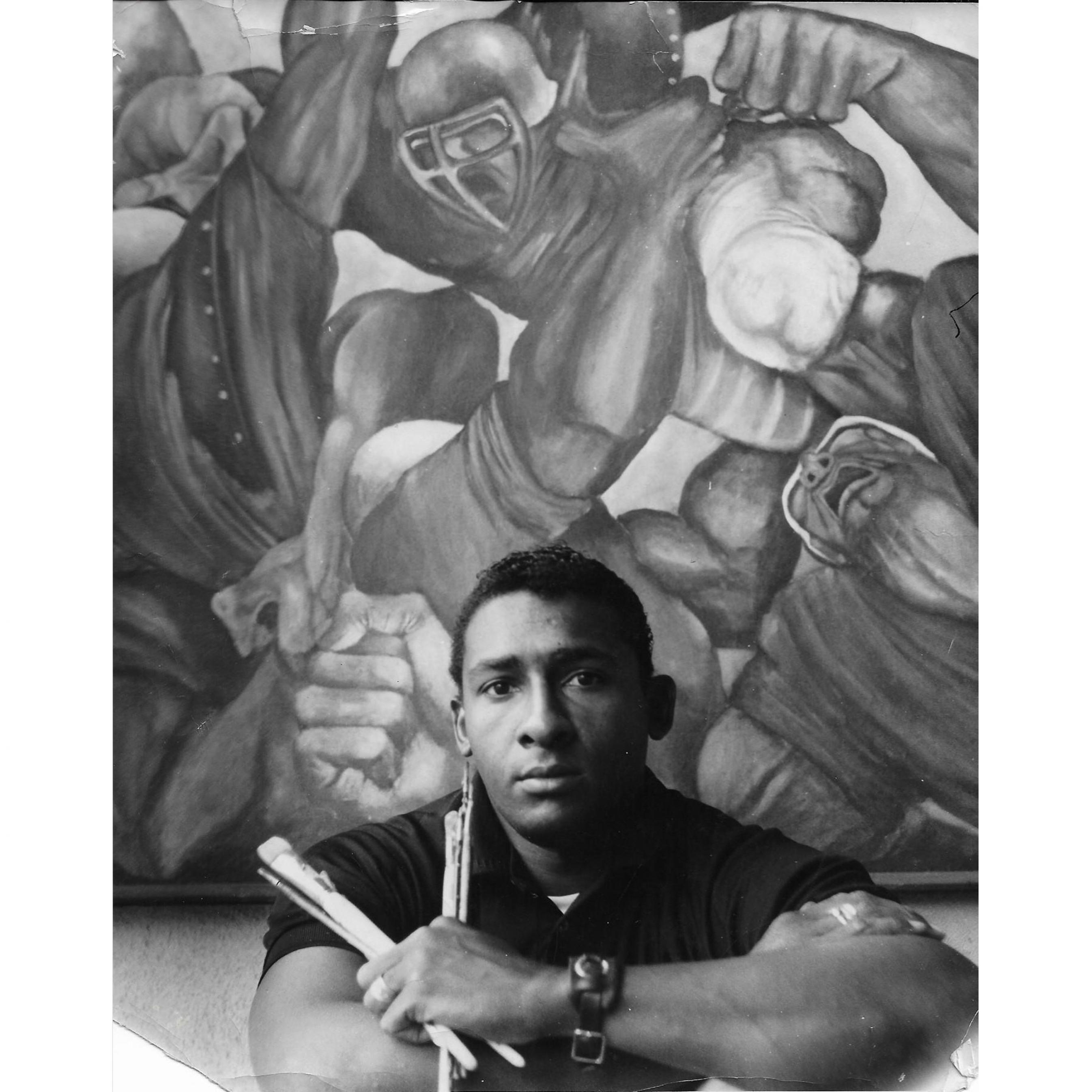
Ernest Eugene Barnes, Jr. was born in 1938, during the height of Jim Crow, in Durham, North Carolina. As a young boy, Barnes occasionally accompanied his mother to work, where she managed the household staff of a Durham attorney. While there, Barnes was encouraged to explore art history through books and catalogues. By the time he entered elementary school, he was familiar with many of the great art masters.
In later years, Barnes attended the then racially segregated Hillside High School in Durham. Often seeking out quiet areas to avoid the taunts of other students, Barnes sought refuge in his sketching. By chance a teacher discovered him one day, asked him about his goals and shared how athletics had transformed his own life. This conversation was an impetus of change in Barnes’ life trajectory. By the time he graduated high school he had received 26 athletic scholarships. Barnes attended the North Carolina College at Durham, now North Carolina Central University, where he majored in art.
After graduating from college, Barnes played professional football for five years, until a foot fracture ended his career. What most likely was a great disappointment at the time was yet another deciding moment which empowered him to concentrate fully on his art. As Barnes transitioned from a professional athlete to a professional artist, he was guided by the words and teachings of his former professor, Ed Wilson, which focused the lens of Barnes’ tremendous talent.
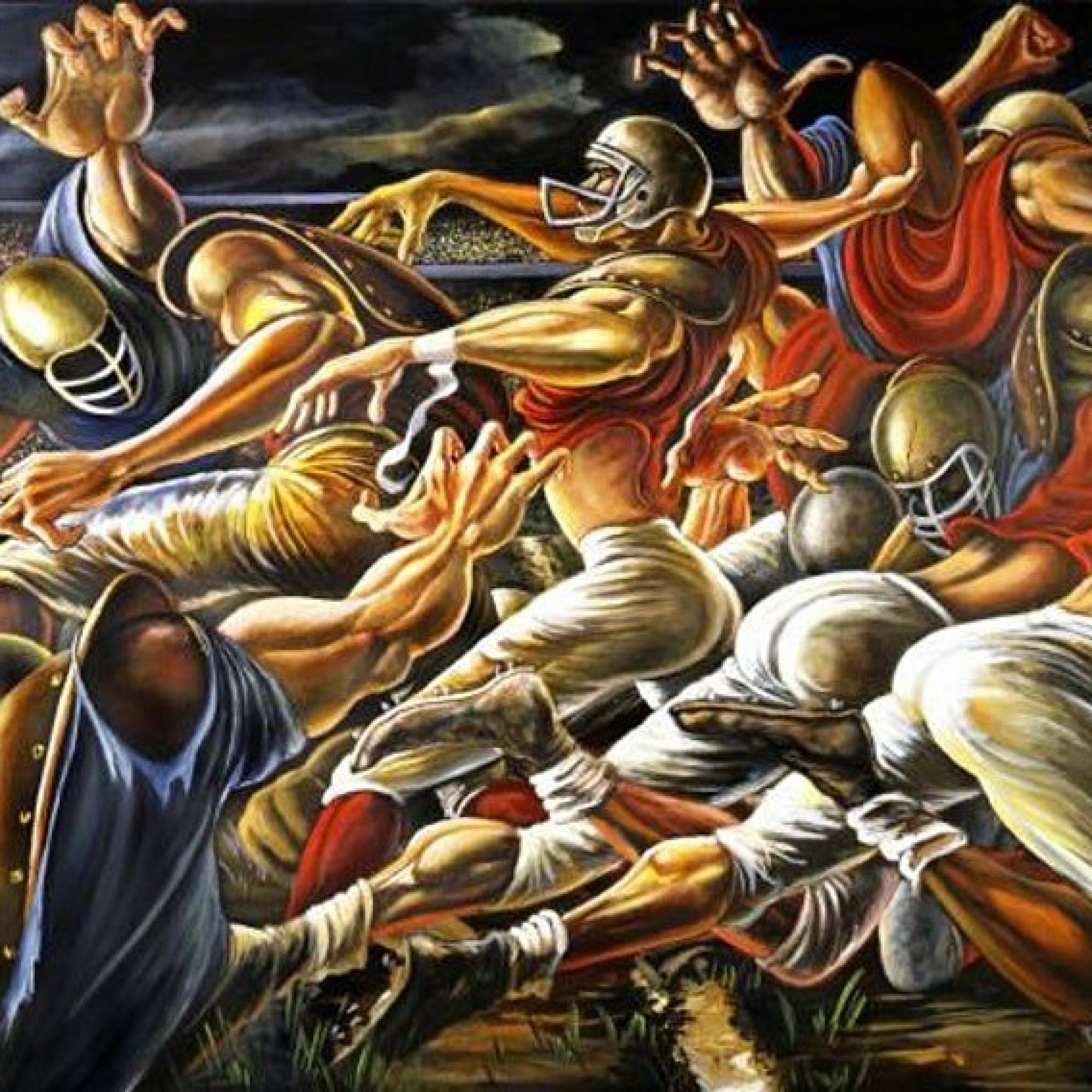
He made me conscious of the fact that the artist who is useful to America is one who studies his own life and records it through the medium of art, manners and customs of his own experiences.
– Ernie Barnes
– Ernie Barnes
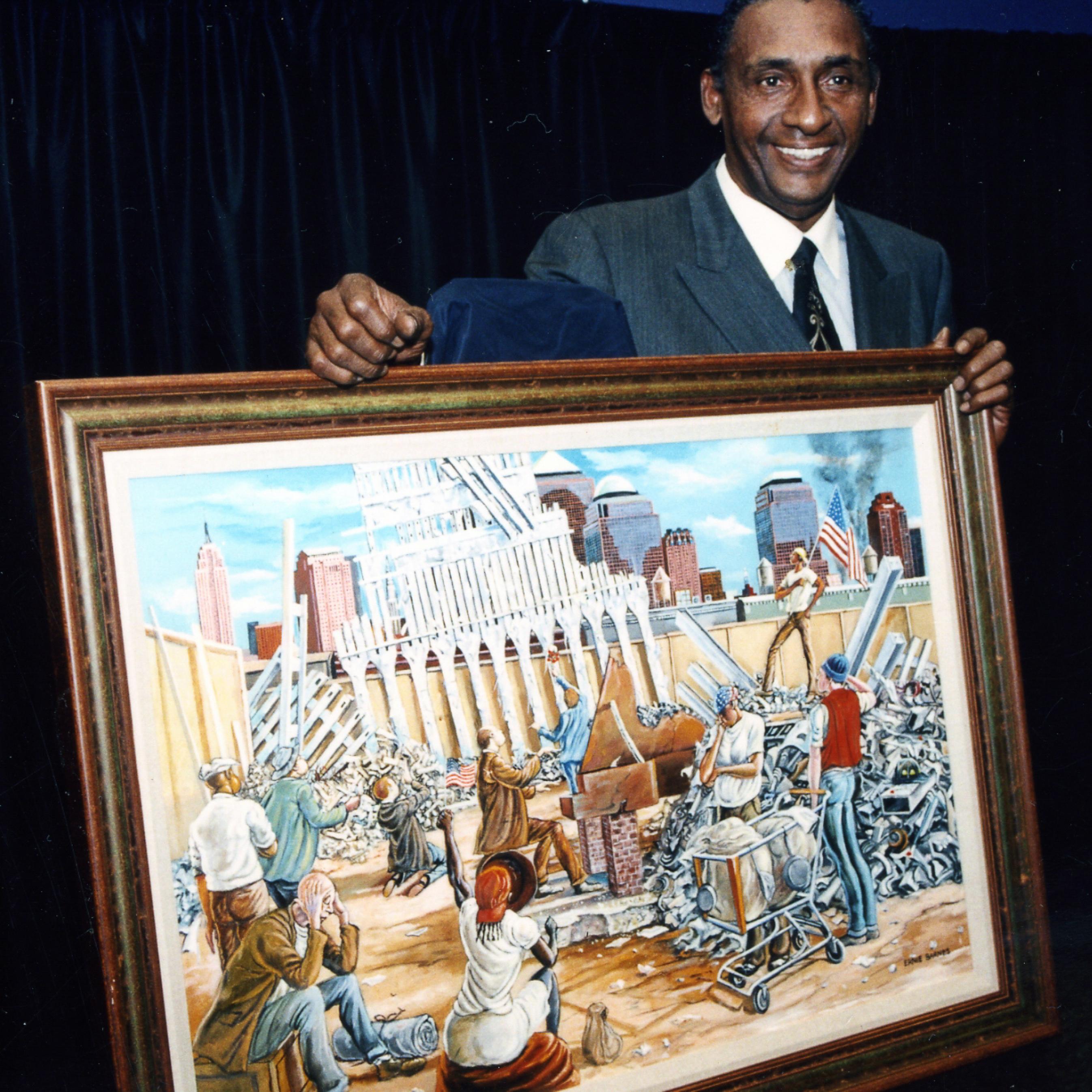
Barnes developed his signature style, often described as neo-Mannerist. Internationally respected for his depiction of expression and movement as well as his representation of the aesthetics of Black America, Barnes’ works encapsulate deep narrative stories.
We are honored to offer two of his works in our Signature Spring Auction on Saturday, March 11th. The first of which, an oil on canvas titled, “Last Hurdle,” depicts a hurdler stretched out, mid jump. Barnes’ hurdler embodies the essence of power, grace, and pure determination. The second work, an oil on canvas titled, “Pool Hall Sharpie,” depicts a long-legged young man contemplating his next move within the dimly lit smoky confines of the pool hall. Both works were purchased directly from the artist.


